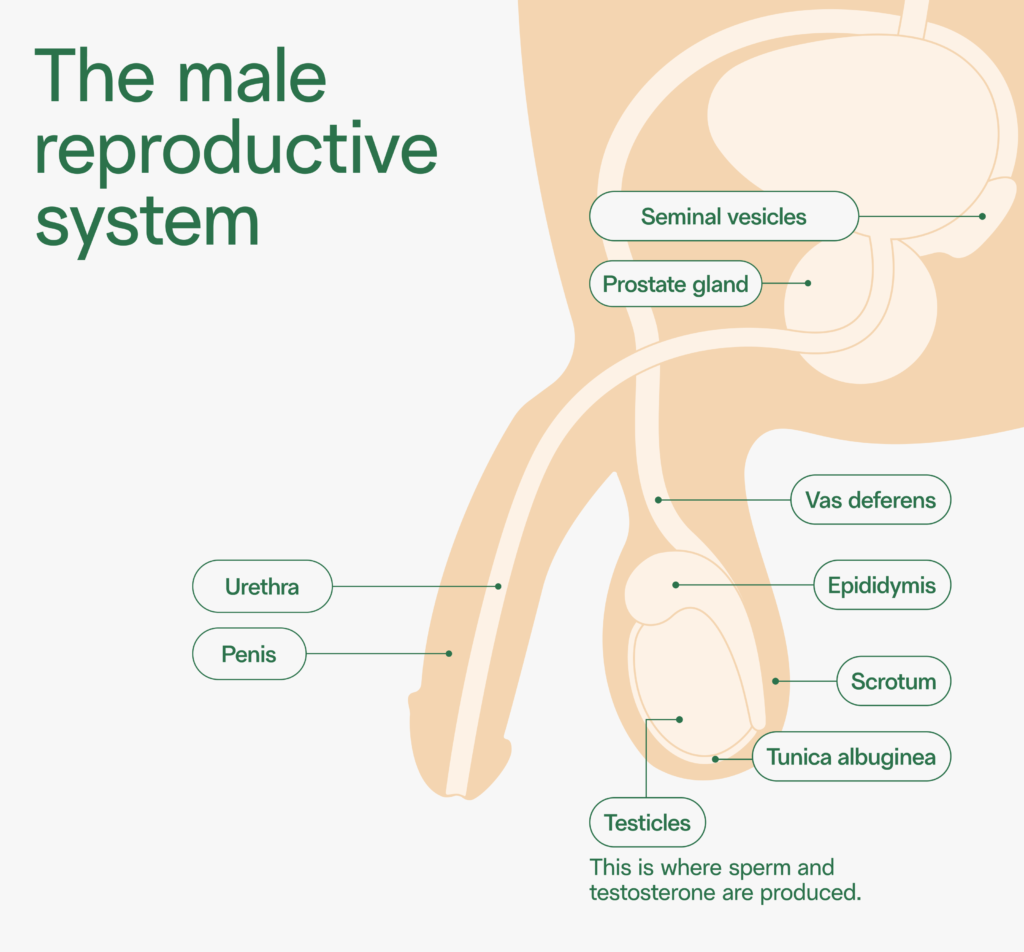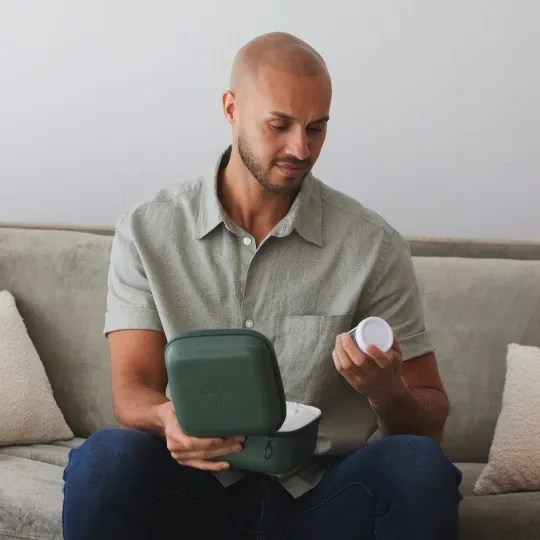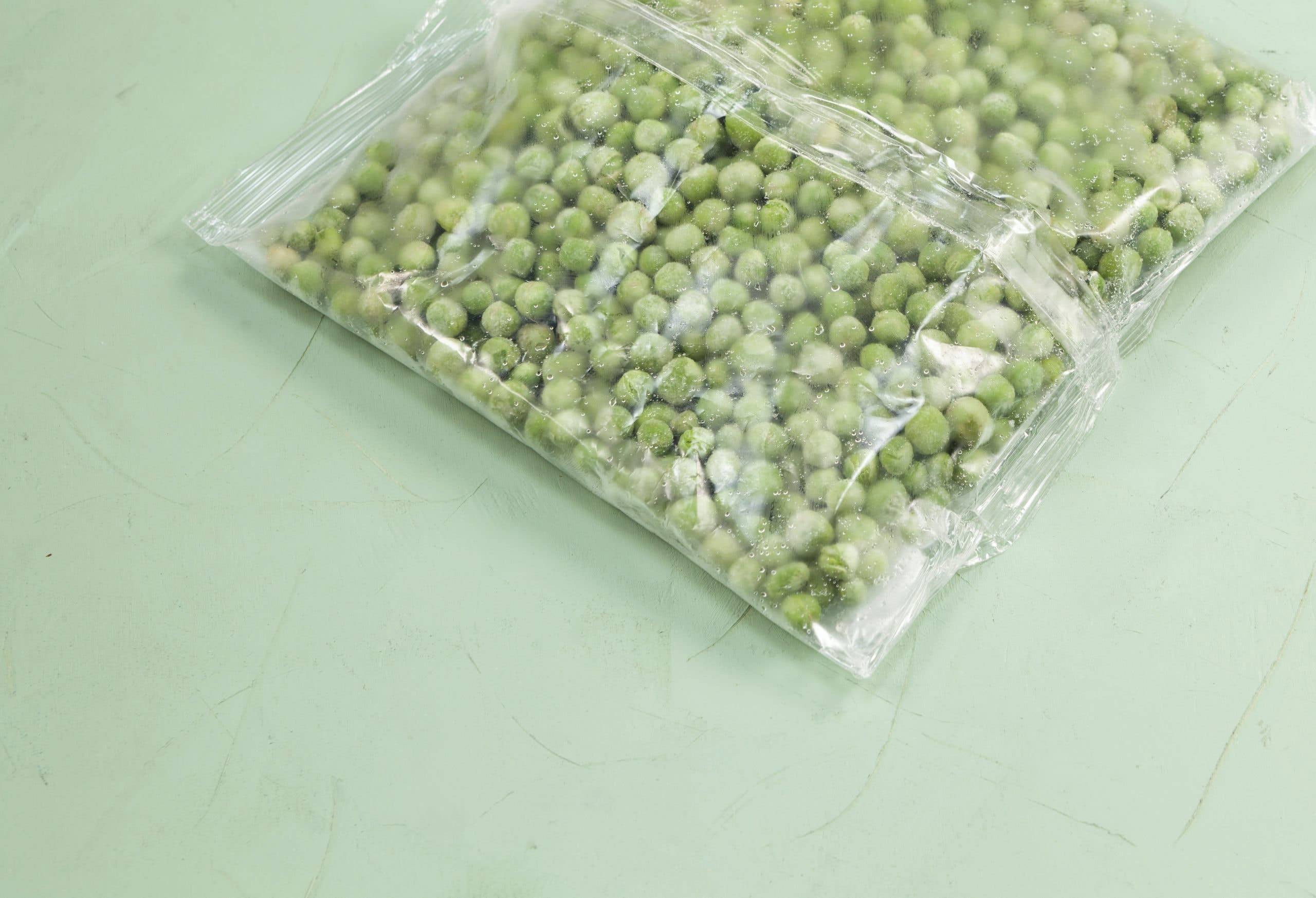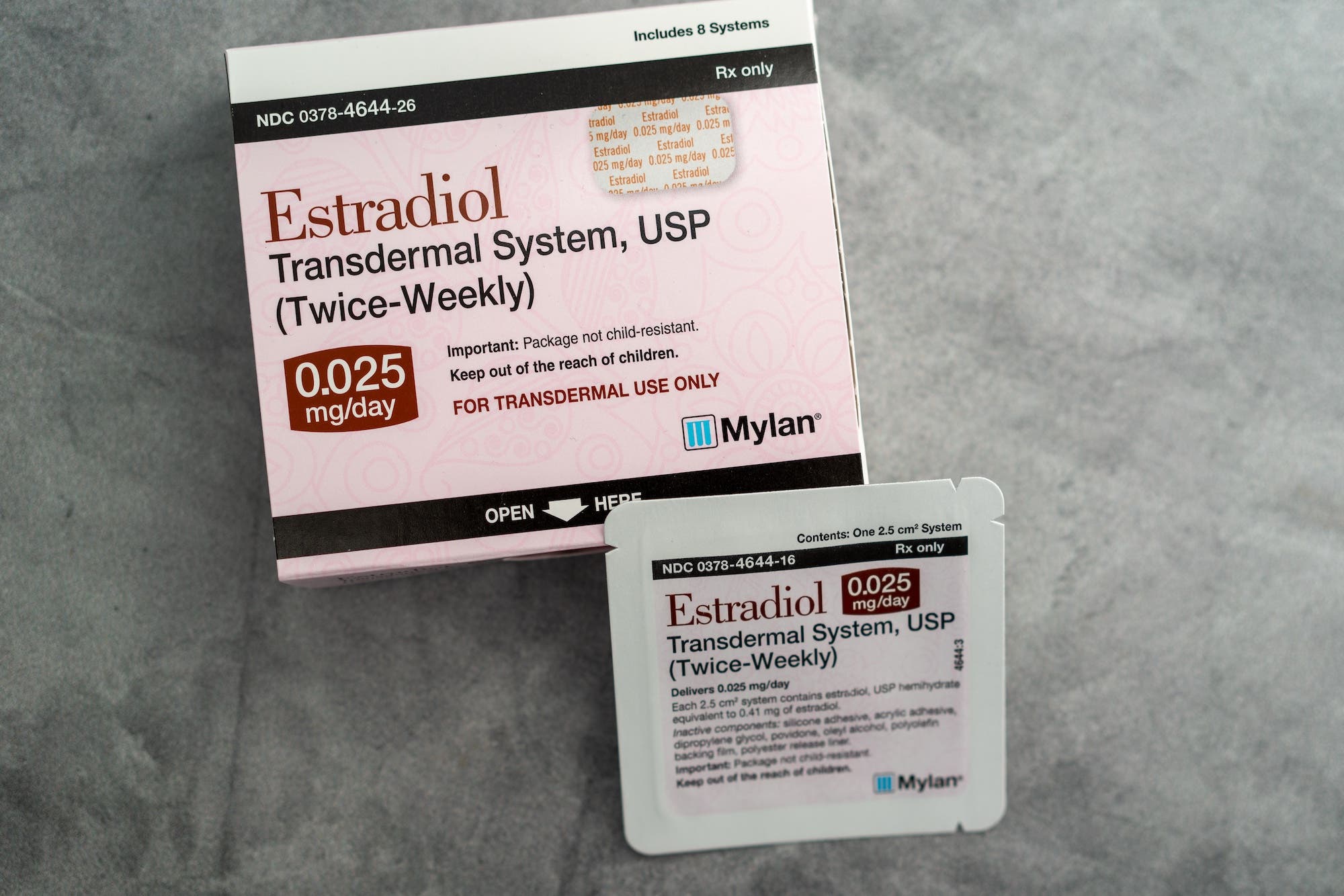Fertility concerns can lead you to read some about some wild home remedies. Have you heard of this one: Icing the testicles to boost fertility?
If you are concerned about your fertility or have a low sperm count, you might be willing to try anything to improve it. But before you do, let’s look at the claims about icing testicles to boost fertility — and what science says — to see if it’s beneficial to your sperm and your overall health.
Key takeaways:
- Heat from fevers, exercise, baths, or sedentary lifestyle can affect sperm quality.
- However, there’s no evidence that cooling the testes with ice packs or cold showers can help reduce the impact of heat or improve fertility.
- If you’re trying to conceive, the best option is to avoid activities that increase your scrotal temperature — sperm quality will recover on its own.
How does heat affect sperm production?
“The testicles sit outside of the body for a specific reason,” says Dr. Ramy Abou Ghayda, urologist and chief medical officer at Legacy.
Spermatogenesis (sperm production) happens best when the testicles are a few degrees lower than body temperature, around 95–96ºF. You may notice that your sack hangs lower on a hot day. This is your body’s way of helping heat dissipate so your testicles can cool down. Conversely, when it’s cold, the testicles retract toward the body to preserve heat. It’s all about maintaining that ideal temperature to help you produce quality sperm.
“We have a strong body of evidence that shows if you expose the testicles to too much heat, it may affect sperm production,” says Ghayda.
This may not exactly be breaking news, but testicles are highly sensitive. Studies have found that even small increases in testicular temperature (1–2°F) can affect sperm parameters like concentration, motility (movement), and morphology (shape).
The extent of the impact depends on how much heat, how long, and how regularly the exposure happens. One study found that sperm concentration dropped 40% for each 1°C increase in scrotal temperature during the daytime.1 In a 2024 animal study, researchers found that damage to sperm DNA and mitochondria was present 35 days after nearly a week of heat exposure.2
Some activities that can cause detrimental heat exposure when done on a regular (i.e., daily) basis include:
- Sitting in a hot tub or sauna
- Wearing very tight underwear
- Intensive cycling
- Working with a laptop on your lap
- Having a high fever
Really, anything that increases the temperature around the scrotum can impact sperm production, possibly harming fertility. But research has found that sperm production can recover after heat stress is stopped.3 So does helping your testicles cool down aid that recovery? Does icing your balls regularly promote sperm production? Let’s find out.

Testicle-cooling devices — how do they work?
There are actual “testicle coolers,” products that claim they lower testicular temperature and improve fertility. Snowballs are a brand of cooling underwear that hold ice packs to bring down the temperature of your scrotum. Similarly, the Underdog consists of a wedge-shaped ice pack to cool your testicles while you’re sitting for long periods. The CoolMen gadget is a pricey wearable testicle cooler that connects to your smartphone.
Many of the products include special underwear or are designed to sit on and cool your genital area — a fancy way of getting an ice pack closer to your balls. But, a strategically placed bag of frozen peas in a dishcloth probably has the same effect.
The question isn’t about the design. Does icing your testicles actually work?
Is there any evidence that icing the testicles improves fertility?
According to Dr. Ghayda, the short answer is no. “These devices are not necessary,” he says. There is no evidence that decreasing the temperature of the testicles with ice packs will improve sperm production. (The exception may be very specific situations, such as cases of undescended testicles.)4
“We know that heat can cause damage to sperm,” states Ghayda, “but there is no evidence to say that icing testicles will be of benefit,” or will compensate for the damage of heat. Reviews of the scientific research have produced inconclusive results. A 2013 review of studies published in the Journal of Obstetrics and Gynecology concluded there “was insufficient evidence to draw any firm conclusions about the impact of scrotal cooling on male fertility,” and said well-designed controlled studies were needed.5 These have yet to materialize.
Most studies show that stopping the regular heat exposure leads to sperm quality and production returning to normal on its own.
What about testosterone and cold showers?
Despite the myth that “cold showers improve testosterone levels,” there’s no evidence that cooling or icing the testicles affects testosterone, a hormone that’s crucial for sperm production. Research shows that exposure to cooler temperatures may be associated with lower testosterone levels.6 One study found that cold exposure after exercise actually reduced testosterone levels among 19-year-old men.7
The bottom line on icing your balls: No clear benefit
Taking long hot showers, baths, or jacuzzis daily can potentially harm your sperm quality and production. But taking cold showers or placing ice packs on your testicles won’t necessarily provide any benefit.
It’s important to exercise caution when placing an ice pack on any part of the body. If not used correctly, placing an ice pack directly on the skin can lead to ice burns and even frostbite. If you decide to use an ice pack at home, never put it directly on the skin. Always cover the ice pack with a cloth or towel.
Improve your sperm quality by reducing heat exposure
Evidence shows that too much heat exposure regularly can damage your sperm. Exactly how often and how much remains unknown. But if you have fertility concerns, are trying to conceive, or just want to improve your sperm health, you might want to reduce your exposure to extreme heat.
Dr. Ghayda recommends:
- Wearing loose underwear that lets air circulate your testicles
- Temporarily eliminating activities that cause excessive heat exposure
- Leading a healthy lifestyle that includes eating a balanced diet and exercising regularly
Learn more about how to improve your sperm health.
Try a semen analysis
Whether you’ve started on a fertility journey or you’re just curious about where your fertility stands, a semen analysis is an excellent way to understand your sperm health. Sperm production reboots about every three months, so if any sperm-health issues are identified, you can make lifestyle changes and reassess.

References
- 1. Hjollund, et. al. “Impact of diurnal scrotal temperature on semen quality. Reproductive Toxicology, 2002.
- 2. Miyzaki et al. “Effects of experimental testicular heat exposure on sperm DNA integrity and mitochondrial activity,” 2024.
- 3. Abedlhamid et al. “Experimental mild increase in testicular temperature has drastic, but reversible, effect on sperm aneuploidy in men: A pilot study,” 2019.
- 4. Jung et al. “Improvement of semen quality by nocturnal scrotal cooling in oligozoospermic men with a history of testicular maldescent,” 2005.
- 5. Nikolopolous, et al. “Scrotal cooling and its benefits to male fertility: a systematic review,” 2013.
- 6. Shevchuk et al. “Possible stimulation of anti-tumor immunity using repeated cold stress: a hypothesis,” 2007.
- 7. Sakamoto et al. “Effects of physical exercise and cold stimulation on serum testosterone level in men,” 1991.




